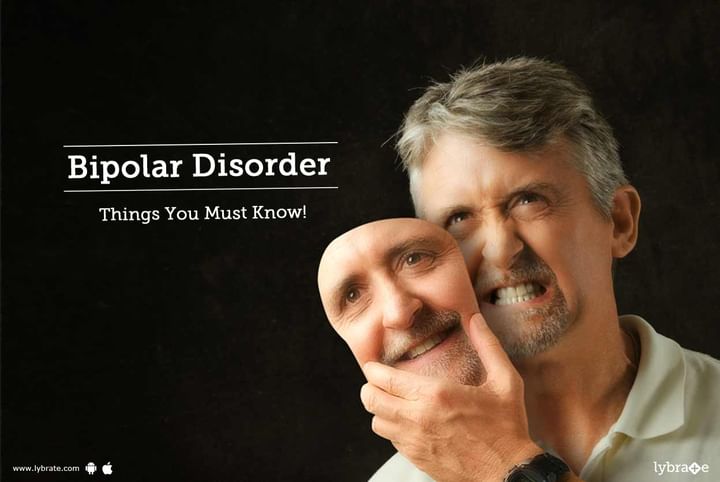Bipolar Disorder - Things You Must Know!
We all have mood swings, but not all mood swings have the same intensity. People who have extreme mood swings ranging from depression to manic highs are said to be suffering from bipolar disorder. These extreme moods are known as episodes and usually last for a few days of even a few weeks at a time. A person suffering from bipolar disorder could have an episode several times a year. This is a very common psychological problem and can affect both children and adults. Though it cannot be cured, this disease can be managed with medication.
There are no known causes for bipolar disorder but genetics may play an important role in triggering this disorder. Hence, if a parent or sibling suffers from this condition, you have a risk of developing it as well. An imbalance in the neurotransmitters in the brain may also play a part in the development of this condition. Stress or traumatic events like the loss of a loved one can also increase your risk of suffering from this condition.
Given that mood swings affect almost each one of us, bipolar disorder can be difficult to diagnose. Some of the things to look out for are:
- Change in self-esteem
- Unusual talkativeness or quietness
- Being increasingly prone to distractions
- Decreased need for sleep
- Agitation
- Recklessness in terms of spending decisions, relationships etc
It must be kept in mind that a person must display at least 4 of the above symptoms simultaneously to be diagnosed as bipolar. Also, none of these symptoms should be a result or side effect of any kind of medication, drugs, alcohol or other intoxicants.
There are four main types of bipolar disorder.
- Bipolar I: In such cases, the person has at least one episode of elevated moods and associated abnormal behaviour in his or her life. This may be preceded or followed by depressive episodes.
- Bipolar II: In these cases, the person must have suffered from at least one depressive episode. It is very similar to bipolar I except that in bipolar II the highs never reach the manic stage.
- Rapid Cycling: Some people can have 4 or more manic and depressive episodes a year. In such cases, they are said to be rapid cycling. This condition affects 10-20% of bipolar cases.
- Mixed Bipolar: Usually, bipolar patients show mood swings that alternate between manic and depressive moods. However, sometimes a person may experience both elation and depression simultaneously or in rapid succession of each other. These cases are known as mixed bipolar.
Once diagnosed, bipolar disorder can be managed with a combination of medication and psychotherapy. In some cases, electroconvulsive therapy may also be needed. If you wish to discuss about any specific problem, you can consult a Psychiatrist.



+1.svg)
